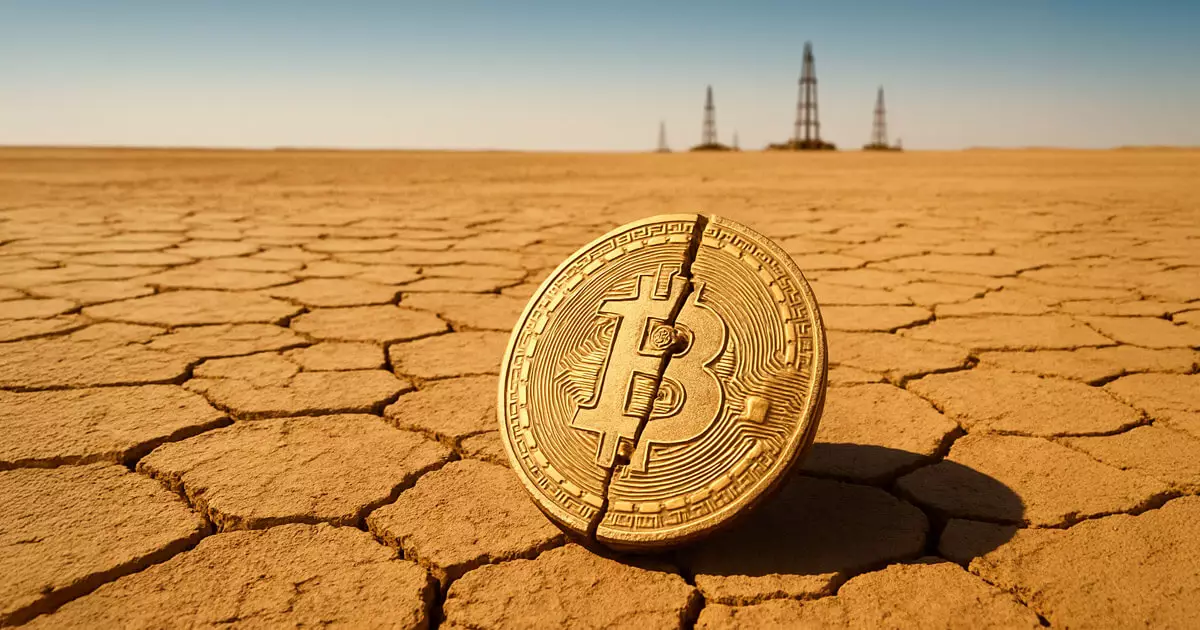In April 2023, Kuwait’s Ministry of Interior delivered a decisive blow to the burgeoning cryptocurrency landscape by outlawing Bitcoin mining across the nation. This move has sparked significant debate regarding the balance between innovation and public welfare. The government cited excessive power consumption and potential violations of several national regulations as key reasons for this ban. While it is undeniable that cryptocurrency mining has gained traction worldwide, especially among nations like El Salvador and Russia, Kuwait’s concerns are rooted in tangible issues that cannot be easily dismissed.
A Cautionary Stance on Energy Consumption
One of the principal arguments against crypto mining is its voracious appetite for electricity. Kuwait, like many countries, faces challenges related to its national grid, and the Ministry of Interior pointedly noted that the rising energy demands of mining operations could jeopardize public safety and the provision of vital services. The excessive load placed on the electricity grid poses a risk of power outages, creating ripple effects that could disrupt residential life and commerce. Critics of the government’s stance argue that innovation shouldn’t come at the cost of infrastructure damage; however, there is a compelling case for responsible energy consumption, especially in a region where energy resources are finite and must be managed with foresight.
Legal Frameworks and ‘Unauthorized’ Operations
The legal ramifications attached to the unsanctioned nature of crypto mining raise another critical issue. The Kuwait authorities emphasize that mining activities breach existing laws, from penal codes to industrial regulations. This legal discourse underlines a broader tension facing many countries: how to regulate a rapidly evolving tech landscape without stifling its potential. The preemptive measures taken by the Kuwaiti government reflect a protective approach that prioritizes orderly governance over the chaotic nature often found in technological innovation—but is this the right balance?
Global Comparisons: A Divided World on Cryptocurrency
While Kuwait enforces stringent regulations, the international landscape shows a stark contrast. Countries like El Salvador and Russia have embraced Bitcoin mining, viewing it as an opportunity for economic growth and energy utilization. El Salvador’s approach of using volcanic energy for state-backed mining operations stands as a testament to how nations can innovate responsibly while exploiting their unique geographical assets. Furthermore, the ongoing exploration by Belarus and Pakistan to channel surplus electricity into Bitcoin mining contrasts sharply with Kuwait’s reevaluation of its energy capabilities. This juxtaposition begs the question: Is Kuwait isolating itself at the risk of stifling potential economic benefits through its restrictive measures?
A Center-Right Perspective: Innovation vs. Regulation
From a center-right liberal perspective, innovation needs a conducive environment to flourish, yet that does not come without its responsibilities. The challenge is to strike a balance: encouraging technological advancements while ensuring that they do not infringe upon the rights and safety of citizens. Regulation doesn’t have to mean prohibition; it could instead serve as a framework that permits responsible mining operations under stringent guidelines. Thus, Kuwait’s ban, while well-intentioned, may be overly draconian and dismissive of the broader economic implications and the potential for innovation fostered through healthy regulatory frameworks.
Kuwait’s decision marks a pivotal moment in the global discourse surrounding cryptocurrency mining, highlighting the need for a more nuanced understanding of both the risks and rewards associated with this digital frontier.

